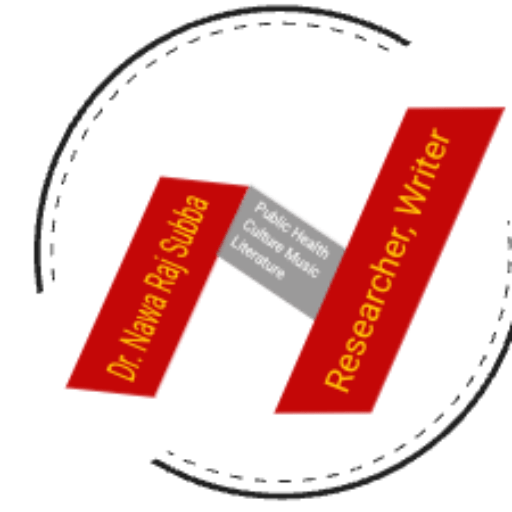BNMT’s Rights-Based Approach to Health in the Eastern Development Region
To cite the report: Nawa Raj Subba. (2011). A Report on Translating Human Rights into Health Realities in Nepal: BNMT’s Rights-Based Approach to Health in the Eastern Development Region. Submitted to Britain Nepal Medical Trust (BNMT).
Summary
Introduction: This document is a summary of BNMT- RBA programs with input and output indicators. Health right based approach programmes have been introduced by BNMT in the collaboration with DHO/DPHOs in Eastern development region from 2005 to July 2011. BNMT now needed to have documentation of its approach, tools, methods and materials and their successful application in promoting RBA including networking and institutional strengthening.
Objective: An overall objective of the study is to prepare a process documentation of RBA by BNMT. This involves an assessment and documentation of processes followed in implementing RBA tools, methods and materials applied. 1.4 Methodology 1. Review of Literatures: Literature on BNMT, HIP, RBA, ICCO, and BLF are reviewed by the writer during the study. Evaluation reports submitted by external and internal researchers, progress reports also reviewed for the documentation. 2. Observations: Observations are also done during field visits and writer observed the situation of the project at field level and district level on the basis of input, process, and outcomes as mentioned on the proposal, progress and evaluation reports.
Findings: DHO and DPHOs have given very positive feedback on the RBA collaboration programs as these programs are designed, implemented and evaluated in a collaborative way by BNMT. Programs are responsible to uplift the level of awareness of disadvantaged in one side and strengthening the capacity of service provider and institutions in another side. Project Evaluation Report (2009) has recommended that RBA need to be mainstreaming with the health system to enhance the capacity of service providers to cater to increased demand, with some modification in model making linkages with existing health infrastructure. There is a need for training on RBA approach to DHO/DPHO staff and to strengthening coordination and networking. The report has also recommended a very crucial recommend on straightening the communication program as BCC is not only on health right but also on duty of community on personal hygiene and habits. The report highlighted the massive need for awareness at different levels. The project end report has recommended as 1. Both capacity strengthening and community empowerment activities and their focus on health rights should be intensified. Advocacy related activities should also be expanded up to the central level policymakers. 2. The M&E system should be reviewed to focus on outcome level indicators, and the financial system should be made project wise to make support for improving programme performance. 3. Referral system strengthening programme should be designed and implemented in the districts. A Report of Rapid Need Assessment of ICCO Bridging Grant, January 2009 had recommended as 1. Advocacy on Rights-Based Approach to Health. 2. Consolidating RBA Programme in the Project Clusters. 3. Integrating HeRWAI in BNMT’s Work Programme. 4. Strengthening Partnership between BNMT and ICCO: Linking a Skilled Partner Organization with Thematic Learning Networks. It is highly noted the program has adopted recommendations made by external and internal evaluators. Apart from the proposal, the approach of the organization BNMT has also played a role to make the project successful. There are key points to be noted to describe the project. 1. The program is based on the need that identified from the Health Improvement Program. 2. Program respected health right which is matched with the country’s politics as well as health right and demand. 3. RBA Programs have supported National Health Policy 1991, and MGDs by increasing access to health services. 4. The program has supported SLHP by focusing on disadvantaged groups. 5. The program has played very well with the variables or stakeholders found in the health system of the country. As a limitation, BNMT has covered selective districts with selective VDCs So, it’s difficult to point out and to measure the impact on national or district health system. However, increasing trend of national health indicators and significant findings from RBA-clusters are associated with each other. Therefore, BNMT has definitely made
32remarkable contribution towards achieving the goals set by SLTHP and MDGs with the comprehensive package in the district and country through ICCO and BLF supported RBA programs. Income generation program, program against women violence, program for conflict-affected people are really helpful and appreciated by the people. There is no doubt that BNMT has served disadvantaged people through ICCO and BLF support in collaboration with DHO/DPHOs in the country.
Recommendations Since Nepal lagged behind to achieve MDGs and SLHP targets and demanded by DHO/DPHOs, these RBA public health interventions are needed to continue and even expand in other districts or VDCs of the country. During implementation, review meetings with supervisors at district (quarterly or half-yearly basis) and with D/PHOs at the regional level (yearly basis) are recommended in order to strengthen the program and to increase mutual understanding between BNMT and DHO/DPHOs.
Report Preview/Download


